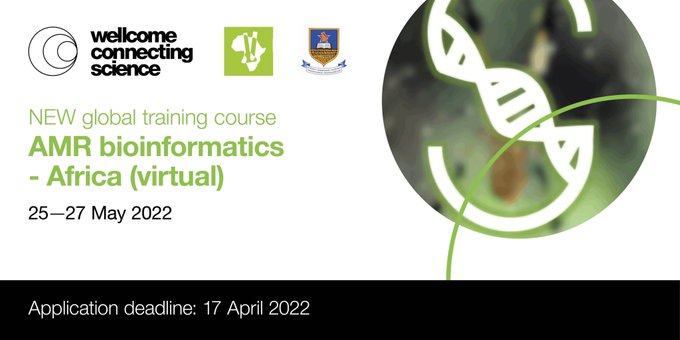In collaboration with the National Institute of Communicable Diseases (NICD), South Africa , we are pleased to announce the AMR Bioinformatics course as part of the SAGESA network aimed at training and building capacity for genomic surveillance of AMR in Africa.
Antimicrobial resistance (AMR) is a global public health emergency and threatens the safe delivery of modern medical care. Global projections of the negative impact of AMR predict the loss of nearly 10 million lives and a cumulative loss of global production up to 100 trillion US dollars by 2050. AMR requires immediate, concerted, international, collaborative action to monitor its prevalence and spread throughout the world. The importance of this has been recognised both by the United Nations and by the World Health Organisation; the latter has published a list of priority pathogens and a global strategy for AMR surveillance.
The challenges of controlling AMR in low- and middle-income countries (LMICs) may be considerable for several reasons. Firstly, antibiotics may be available for human and animal use without a prescription, resulting in unregulated use. Secondly, accurate data on antimicrobial prescription or consumption may not be readily available. Thirdly, there may be limited knowledge about the appropriate use of antibiotics and a lack of antimicrobial policies or stewardship programmes. Finally, there may be limitations in healthcare facilities and laboratory capacity for the detection and management of AMR.
This 3-day workshop aims to address some of these challenges by improving the knowledge and skills of individuals interested in antimicrobial resistance in bacterial pathogens in Africa. It will contain hands-on WGS-based bacterial typing methods such as AMR detection, cgMLST, MLST, core genome SNP based phylogenetic analysis.
This workshop is free to attend and open to SAGESA network members based in Africa who are actively engaged in, or soon to commence, research, clinical practice, provision of clinical services, or policy development related to AMR in bacteria. To join the network please click on this link.
Apply here: bit.ly/3NWUOu6


